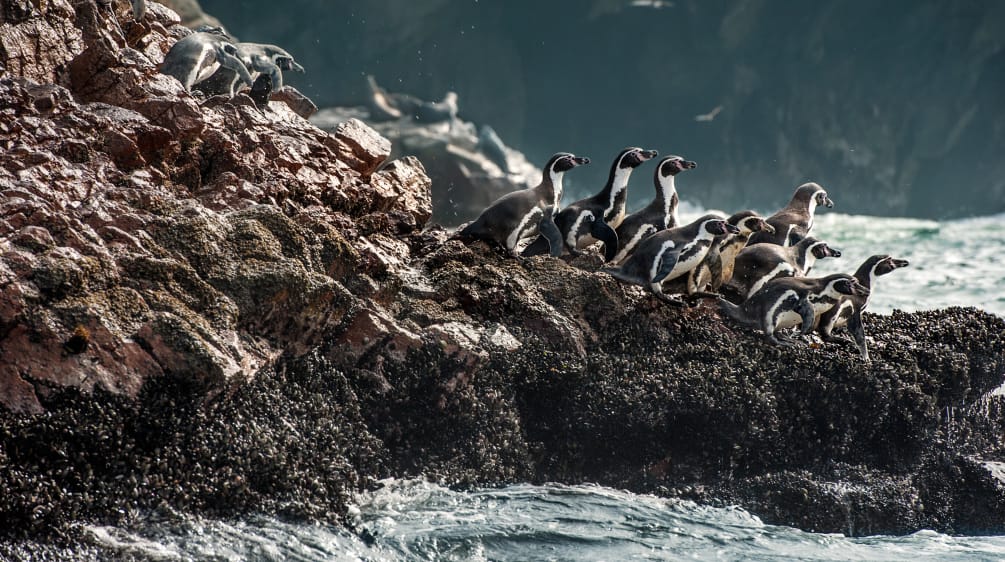Chile upgrades protection of the Humboldt Archipelago
 Humboldt penguins (© studio-laska/iStock)
Humboldt penguins (© studio-laska/iStock)
Oct 27, 2023
According to a decision by the Chilean Council of Ministers for Sustainability, the Humboldt Archipelago is now a marine protected area. This is a significant step forward in environmental policy for this biodiversity hotspot.
On August 11, 2023, the Council of Ministers for Sustainability unanimously agreed on protecting the Humboldt Archipelago. The entire ecosystem from Punta Pájeros in the north to Punta Poroto in the south, a total of 5,760 square kilometers, is now a “Marine Protected Area of Mixed Use” (Área Marina Costera Protegida de Múltiples Usos, AMCP-MU) in which activities with low environmental impact are permitted.
The decision significantly enhances the protection status of the Humboldt Archipelago.
There was massive resistance to this move right up to the last minute due to fears of deterring investors. Institutions and civil society groups from the communities of Freirina (Atacama region) and La Higuera (Coquimbo region) were involved in the long participatory process.
“With this measure, we are making progress in conserving biodiversity in coastal waters, creating sustainable development opportunities for communities and promoting economic benefits in tourism, recreation and fisheries,” said Environment Minister Maisa Rojas.
“This is one of the most important environmental policy achievements in Chile in recent times, not only for the protection of this biodiversity hotspot, but also for safeguarding economic activities such as artisanal fishing and tourism that are crucial in both regions,” said Liesbeth van der Meer, Executive Director of the NGO Oceana.
Already protected island and marine areas and the National Reserve of the Humboldt Penguin (Reserva Nacional Pingüino de Humboldt) retain their higher protection status.
However, contrary to urgent demands by scientists and conservationists, major industrial projects, shipping traffic, anchoring of ships and even large desalination plants have not been banned. All previously issued permits and licenses remain valid.
“Unfortunately, the danger of destroying the Humboldt Archipelago has not been averted with such an openly conceived marine protection zone,” notes the NGO Sphenisco.











